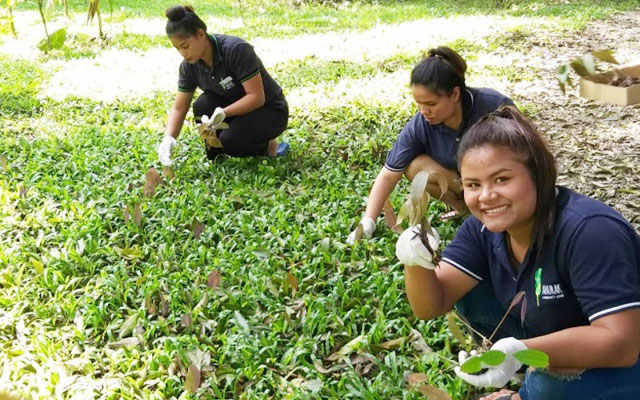Anaruk Community Lodge at Khao Sok National Park in southern Thailand has initiated a Rainforest Rising tree planting project that ropes in guests as active supporters.
For a small fee of 300 baht (US$10), guests will get to plant a sapling tree as part of the lodge’s forest regeneration project, and opt to stay updated on the progress of their tree and the project via email, besides taking home a Rainforest Rising t-shirt as a souvenir.

The Rainforest Rising tree planting project extends to a new information centre that educates guests on the importance of biodiversity and practical considerations when regenerating forest cover.
“By planting trees, absorbing all the information, talking to our gardeners and joining our ecotourism activities, guests get a very rewarding and insightful back to nature experience,” said George Newling-Ward, manager of the lodge.
“They also contribute to the long-term ecological well being of the area.”
Anaruk Community Lodge has set a target of transforming 0.8 acres of nearby land into indigenous lowland evergreen forest by 2023. Its eventual aim is to regenerate another four acres of land in its proximity, and have the two plots be on par with the nearby national park in terms of biodiversity.
To ensure that the replanting process takes the conditions of the plot’s location into account, the lodge is partnering with the Forest Restoration and Research Unit (FORRU) at Chiang Mai University to execute the project.
Saplings planted by guests will be given a location according to the plan outlined by FORRU.
The two plots of land that the project attempts to regenerate were cleared of forest more than 50 years ago. They were last planted with oil palm trees in 2007.
According to the lodge, the palm oil plantations were unsuitable habitats for indigenous wildlife such as the Javan mongoose, pangolins, tapirs and loris.
Newling-Ward reckons that the project would attract school and college groups post Covid-19.




















